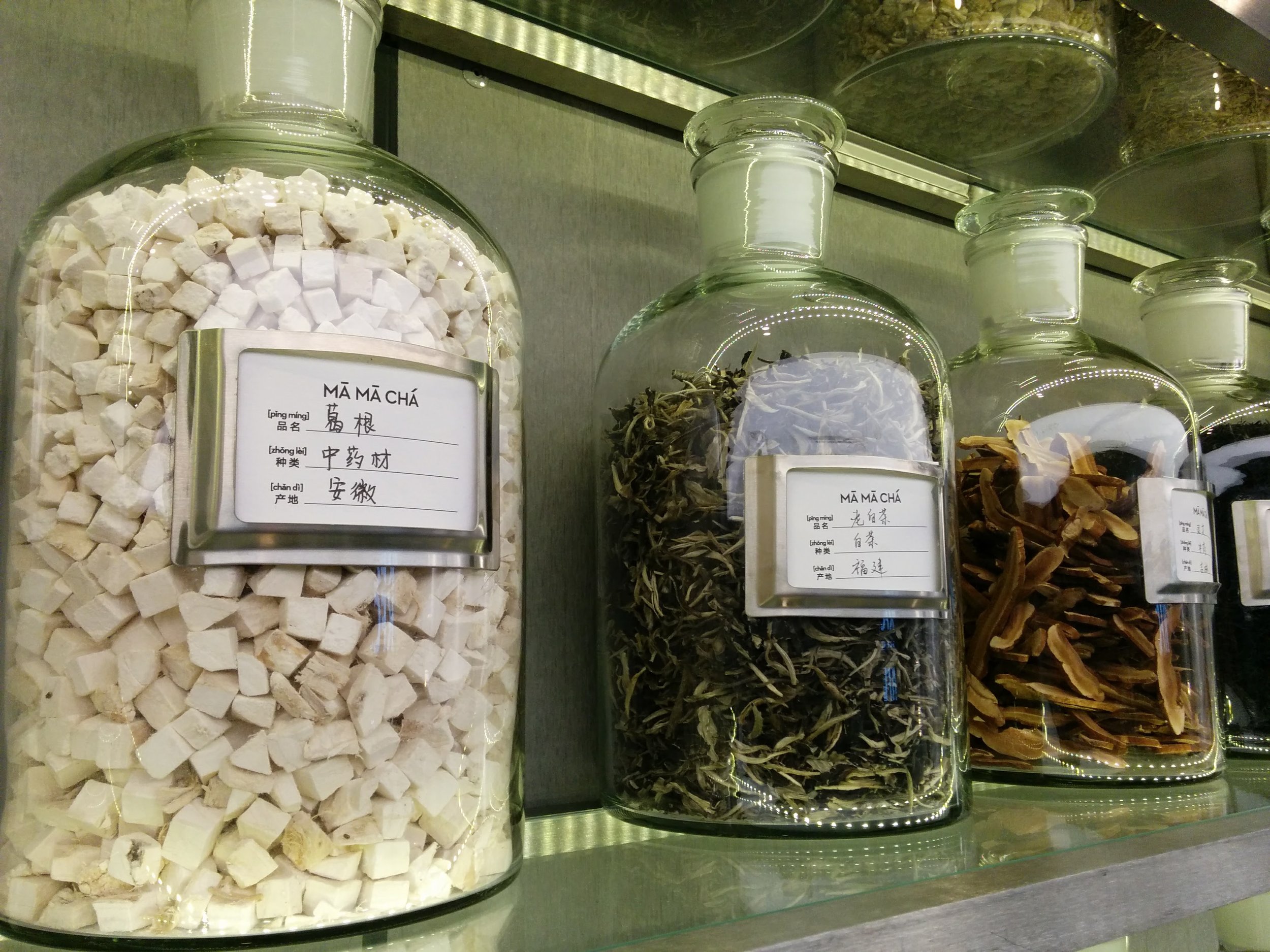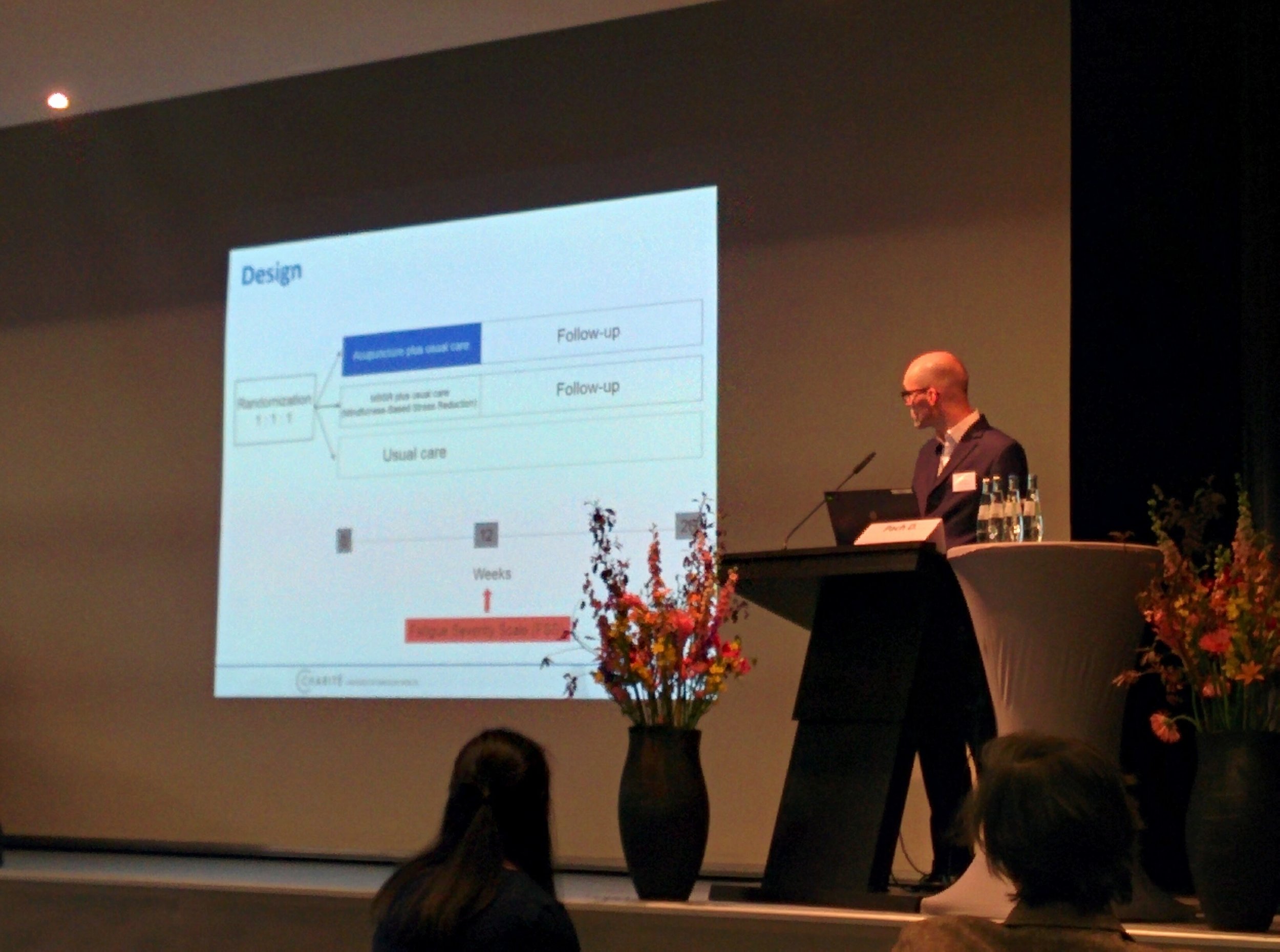Research musings over Bratwurst
Warmly welcomed by the Berlin City Buddy Bear
In May 2017, I was invited to deliver two herbal research workshops at the International Conference for Complementary and Integrated Medicine Research in Berlin. This international conference is run every year and I've been to a few now since being involved in research - it's always a lot of fun meeting like-minded people and this year there was even Bratwurst on the menu. I mean, how could I refuse?
On a more serious note, conferences like these create an important opportunity for healthcare practitioners, students and researchers to meet and discuss all matters related to complementary medicine and its integration with mainstream medicine. There are amazing differences between how Chinese medicine is perceived and practiced between different countries - for example for fertility, Chinese herbs are more widely used than acupuncture in China. This is what makes the range of research so interesting and given the prominent international movement towards a more integrated style of practicing medicine, the need for this kind of platform to share academic research and facilitate these discussions seems ever more pertinent. If these discussions happen to take place over a beer or two, then I am thinking this is probably a good thing to encourage people to take part in the conversations the first place.
In this blogpost, I wanted to highlight a few pieces of research that struck me as being the most important for the kinds of patients that I see in my clinical practice and to show the kinds of advances in knowledge that are being made within the professional community internationally.
Herbal medicine research programme in Southampton
One of the workshops I presented at highlighted the spectrum of herbal medicine research being conducted alongside GP-researchers at the University of Southampton. There’s so much going on from looking at how compounds in the plant Bearberry (Arctostaphylos uva ursi) might help with symptoms of urinary tract infection (conducted by my colleagues Jeanne Trill and Dr Merlin Willcox), to my own work on exploring how feasible it is to carry out a clinical trial in the UK on Chinese herbal medicine to help regulate periods in polycystic ovary syndrome (PCOS). Dr Andrew Flower is also currently completing his study on the feasibility of offering Chinese herbal medicine for symptoms of recurrent urinary tract infections in general practice – we are waiting eagerly for his preliminary results which will be available from 2018!
Presenting findings at Berlin ISCMR 2017 conference workshop
Chinese herbs in tea shop in Chang Sha (长沙), China - Ge Gen 葛根
Acupuncture for multiple-sclerosis associated fatigue
Dr. Daniel Pach, a medical doctor based at Berlin’s Charité, presented on his research into acupuncture for multiple sclerosis (MS) related fatigue. This was a randomised controlled trial which involved offering participants conventional care alone, or a standardised set of acupuncture points used widely in China for MS in addition to conventional care. After 3 months’ of treatment, acupuncture in additional to usual care was significantly better than usual care alone for MS-associated fatigue. The full research paper is yet to be published and although the findings sound pretty encouraging, Dr. Pach acknowledged that one of the downsides of this study was the lack of placebo since ‘fake acupuncture’ wasn’t included as a test treatment. More research into how acupuncture works is certainly important and should continue to be looked into. However, there are some who argue that research like this trial - comparing treatments head-to-head – is more relevant to patients and doctors because it helps determine which treatments should be recommended in practice. Where treatments like acupuncture or herbal medicine are already available to the public and are already being used for certain symptoms (as opposed to for example a newly-developed pharmaceutical drug untested in animals or humans), some argue that public funding of research into these treatments could be even more clinically-impactful.
Concluding thoughts
The most important take-home message of the conference was really about the power of collaboration and for me how practitioners like herbalists and acupuncturists can work alongside mainstream healthcare providers to meet healthcare challenges today. In the UK there are ever-increasing demands on the NHS – as an example, our research in primary care aims to see if herbal treatments can:
- Act as viable alternatives to pharmaceutical medications which may not be particularly effective for certain conditions;
- Reduce excessive use of antibiotics for symptoms where antibiotics are not necessary
- Reduce caseloads for GPs through better symptom resolution.
Of course these ideas need to be supported by good evidence and should be publicised whether the results are positive or negative. It’s hoped that this particular programme of herbal research in Southampton will help GPs and patients alike make more informed decisions on the use of herbal medicine for their symptoms.
Dr. Daniel Pach, presenting preliminary results on Acupuncture for multiple sclerosis related fatigue in Berlin ISCMR 2017
Chinese herbs (Mai Men Dong 麥門冬, Pang Da Hai 胖大海, Ju Hua 菊花, Jin Yin Hua 金银花, Yu Mu Die 玉蝴蝶) in Beijing supermarket
Further reading
For a full list of abstracts presented at the ICCMR conference in Berlin
‘Herbal medicine for comprehensive patient care’ - published in the School of Primary Care Research May 2017 newsletter





